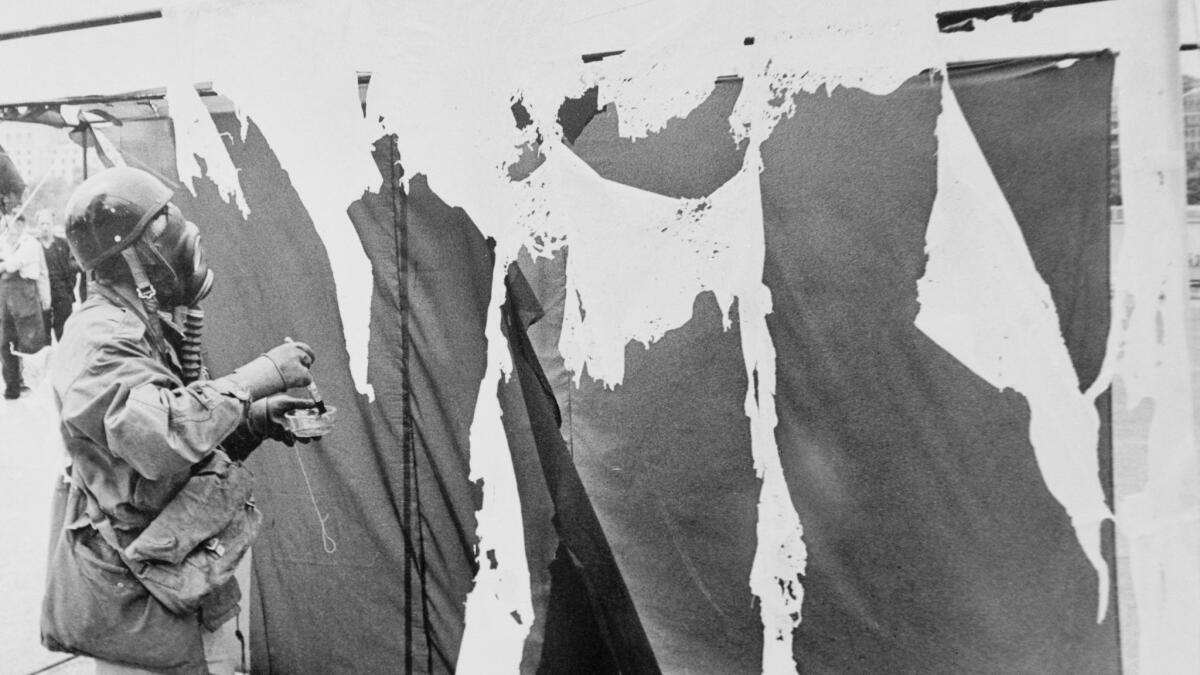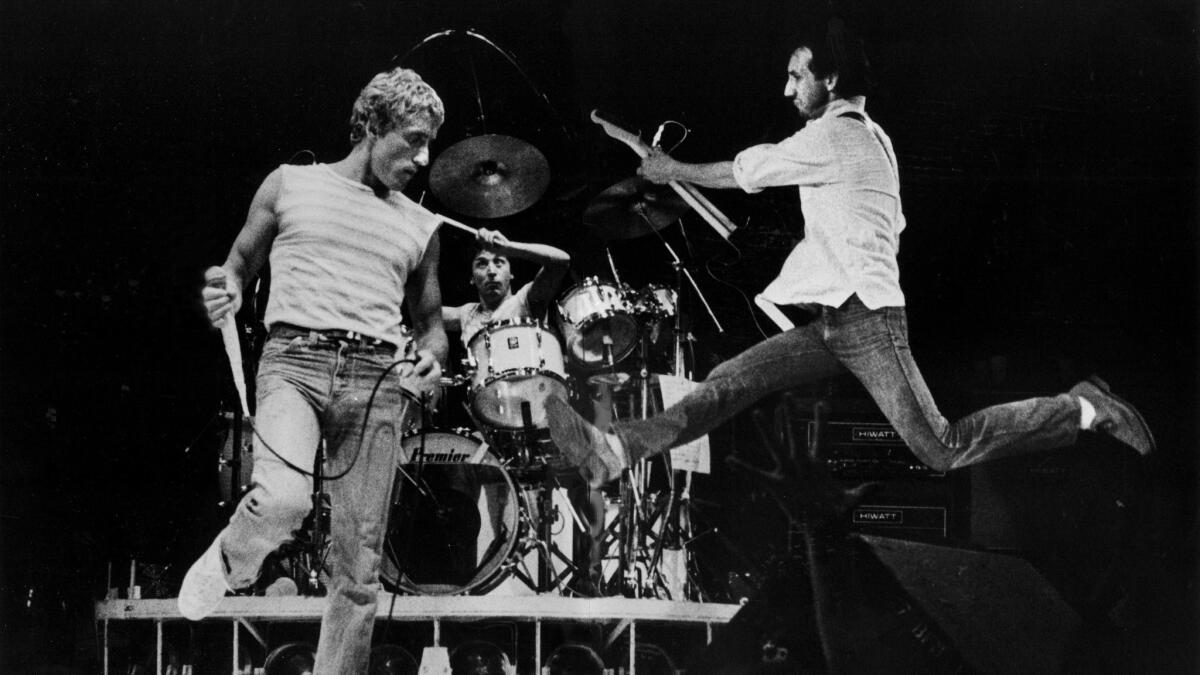Gustav Metzger, ‘auto-destructive’ artist who inspired Pete Townshend to smash his guitars, dies at 90

- Share via
London — Gustav Metzger, whose concept of “auto-destructive art” inspired the Who’s Pete Townshend to smash his guitars, has died at age 90.
Metzger died Wednesday at his London home, his publicist Erica Bolton said.
Born to Polish Jewish parents in Nuremberg, Germany, in 1926, Metzger was one of thousands of Kindertransport children brought to Britain from Nazi-occupied Europe in 1939. Most of his family died in the Holocaust.
Metzger studied art in Cambridge, London, Antwerp and Oxford and became politically engaged, active in the Campaign for Nuclear Disarmament and the anti-war group the Committee of 100. In 1961, he was briefly imprisoned with philosopher Bertrand Russell and other members of the group for encouraging civil disobedience.
In 1959, Metzger produced a manifesto for “auto-destructive art,” which he described as “a desperate last-minute subversive political weapon” against capitalism and consumerism. The idea was to meld destruction and creation.
For one artwork Metzger applied acid to nylon sheets so they disintegrated — creating a new view.

Townshend studied under Metzger and has said the artist inspired him to destroy guitars onstage at the climax of the Who’s 1960s shows. Psychedelic projections by the artist were used as a backdrop during shows by the Who and Cream.
Metzger said the seeds of his art were sown in his German childhood.
“When I saw the Nazis march, I saw machine-like people and the power of the Nazi state,” he told the Guardian in 2012. “Auto-destructive art is to do with rejecting power.”
Metzger used varied and sometimes unconventional materials in his work, including paper, cardboard, trees, chemicals and cars.
In 2004, London’s Tate Britain gallery displayed a Metzger installation that included a bag of garbage. A cleaner mistook it for real trash and threw it out.
More to Read
Start your day right
Sign up for Essential California for the L.A. Times biggest news, features and recommendations in your inbox six days a week.
You may occasionally receive promotional content from the Los Angeles Times.






